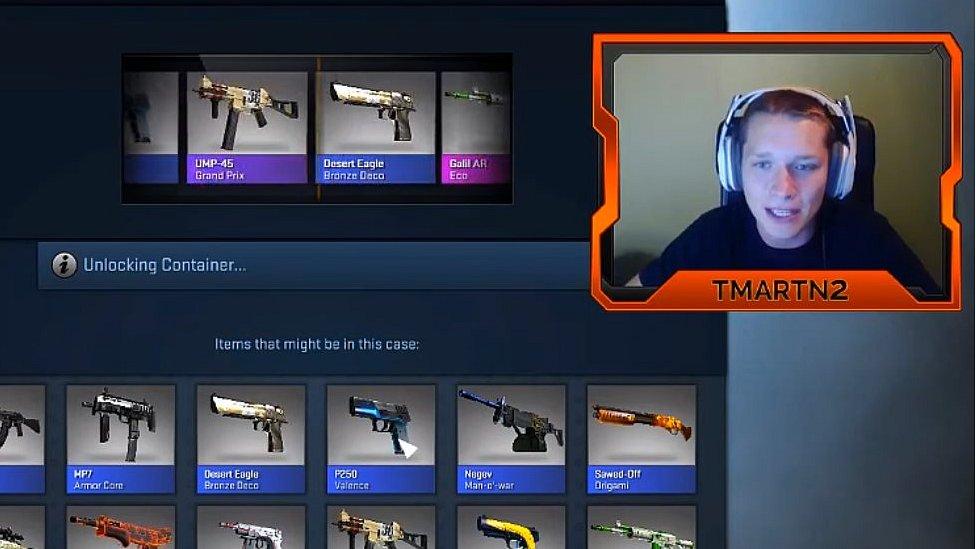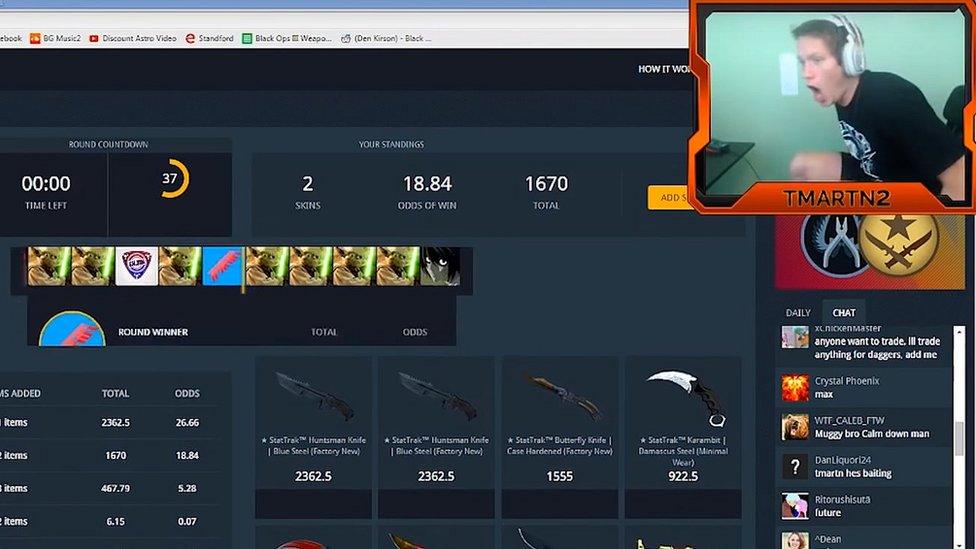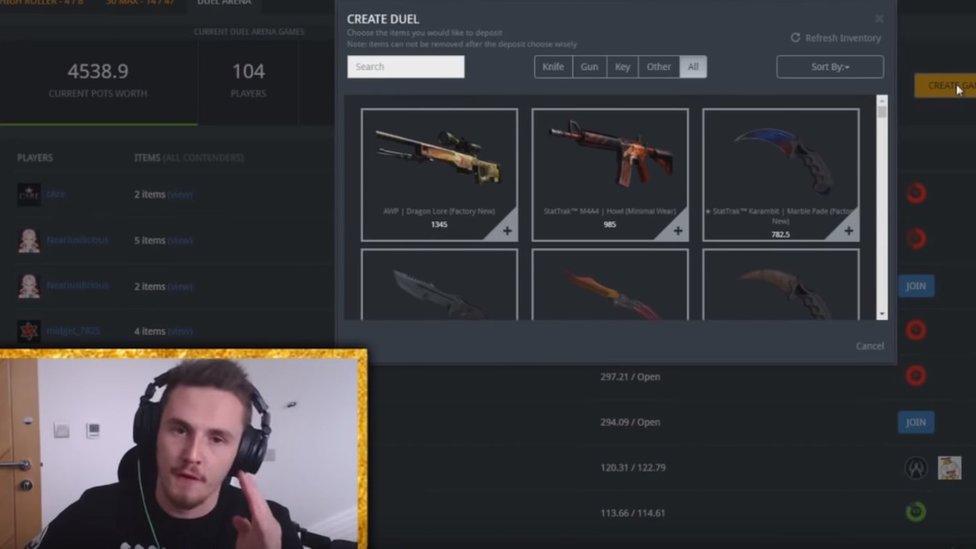YouTube gamers caught in gambling row
- Published

Trevor Martin and Tom Cassell
Two YouTube gamers have been criticised for promoting a betting website to their viewers, without clearly disclosing that they operated it.
Trevor Martin and Tom Cassell, known online as TmarTn and Syndicate Project, uploaded videos in which they appeared to win big prizes playing CSGO Lotto.
But it has emerged that the pair are presidents of the company, which is incorporated in Florida.
Mr Cassell apologised on Twitter to those who felt misled.
In a YouTube video message, external to his followers, which he later deleted, Mr Martin said that the ownership of CSGO Lotto had "never been a secret".
"I created the site. I wanted to build something awesome for other people to enjoy and I played on it," he said.
"Obviously, on my end, me playing on Lotto rather than other sites, gives me an advantage because it promotes my own site, but it is not immoral, there is nothing wrong with it. I am 100% honest."

CSGO players can buy keys for the chance to win rare items
A number of gambling websites have been built around the multiplayer first-person shooter game Counter Strike: Global Offensive (CSGO).
In CSGO, players can exchange real money for the chance to obtain a modified weapon known as a skin.
"Skins are a visual modification for your weapon, such as a golden gun, and they come in different rarities," said Tom Phillips, from gaming site Eurogamer.
"You pay $2.50 [£1.80] for a key to unlock a crate. Like a slot machine, you put your money in, watch the screen go around, and you get an item.
"Players can sell the skins they get too. As crazy as it may seem, some of the skins go for thousands of dollars. Many professional players have that sort of money to splash out."
The game has spawned a number of gambling websites that allow players to bet their skins for the chance to win more valuable ones.

Mr Martin uploaded a video where he appeared to win skins worth thousands of dollars
Mr Martin and Mr Cassell both uploaded multiple videos on YouTube in which they placed bets on CSGO Lotto and won big prizes.
But another YouTube producer, HonorTheCall, external, then found legal documents that showed that Mr Martin was the president of the company, with Mr Cassell listed as vice-president.
Mr Cassell had acknowledged in the description of the videos he uploaded that they had been "sponsored" by CSGO Lotto - although Mr Martin did not.
"In portraying a site as a cool thing they have discovered online, they're encouraging their viewers to play, showing it as a place where they can make money. That is dishonest," said Mr Phillips.

Mr Cassell did not make it clear he owned CSGO Lotto with Mr Martin
"Their videos showed them winning thousands of dollars very easily, and that invites a lot of questions. They're inviting their fans to put money into a website, and actually they're also behind it.
"It damages their credibility - and on YouTube credibility is an important thing."
Addressing the ownership of the company, Mr Cassell tweeted: "I apologise to anyone who feels misled regarding the ownership of CSGO Lotto. I will always be more transparent from here on out!"
"I do however stand very firmly behind the fact that CSGO Lotto has never and will never scam / steal from players."
Further action
Some gaming YouTubers have questioned whether online games such as CSGO Lotto are technically a form of gambling, as the skins won can be exchanged for real money.
In April, Bloomberg reported, external that online betting on games such as CSGO was a booming industry worth billions of dollars.
The UK's Gambling Commission told the BBC: "We are paying close attention to the growing popularity of virtual or in-game items (skins), which can be traded, sold or used as virtual currencies to gamble.
"If we suspect unlicensed gambling is taking place, we will write to the operator to inform them that they need a licence and will take further action if they do not stop."